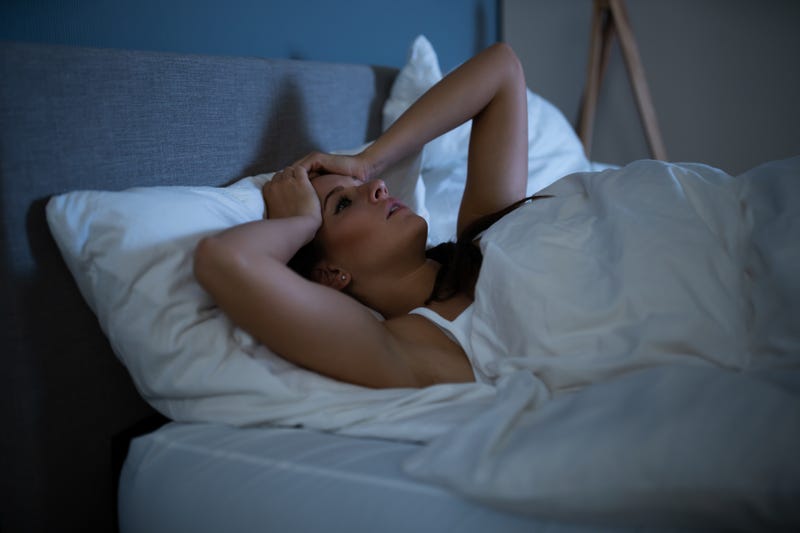
CHICAGO (WBBM NEWSRADIO) -- As the COVID-19 pandemic continues on, many are still struggling with sleep problems.
If you are having trouble sleeping these days, you are not alone. Sleep specialist Dr. Kimberly Lemke said mental health and sleep problems are extremely common and often go untreated.
"We see it with anxiety, we see it with depression. Sleep is an ongoing issue with stress. Then we get hit by a pandemic, which increases everybody's stress," said Dr. Lemke.
She said more stress means less sleep; and over the last couple of years especially, she has gotten more calls about sleeplessness and burnout, which creates a domino effect.
"I've had a whole bunch of organizations reach out, because they see burnout, so organizations are absorbing costs. Healthcare costs are absolutely on the rise with more visits to healthcare professionals," Dr. Lemke said.
Dr. Lemke added that sleep problems can eventually lead to other health issues.
"You know when you are not sleeping, and stress, it affects things like diabetes, mental health, blood pressure..." Dr. Lemke said.
Dr. Lemke said she teaches her patients how to take back control of their sleep. One way is by building sleep chemicals throughout the day.
"Throughout the day, if they are doing things that help them build those chemicals, they will sleep better at night," she said.
Dr. Lemke said especially during the pandemic, people have been sensory deprived, which causes sleeplessness. She recommends getting outside more. Even a short walk can create the chemical needed for better sleep. Other things that help include getting fresh air, taking in as much light as possible, and avoiding looking at your phone before bed.
She also recommends creating a before-bed routine that helps you fall asleep and stay asleep. Stimulating your senses help the body shut down each night.
About 70 million people in the United States deal with sleep disorders, yet half don't get treatment and continue to suffer.
The number of people suffering from sleep disorders has increased since the start of the pandemic.


